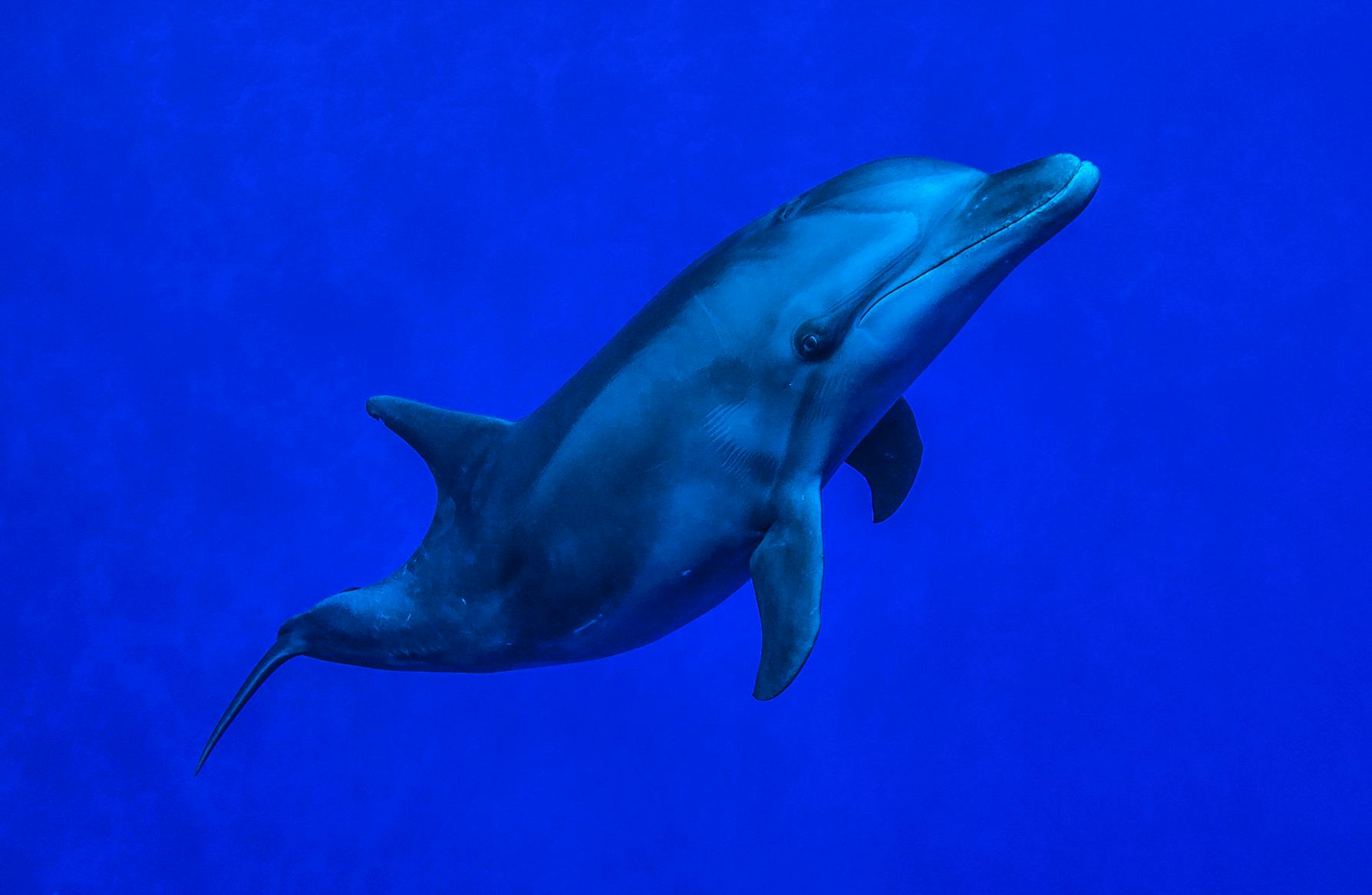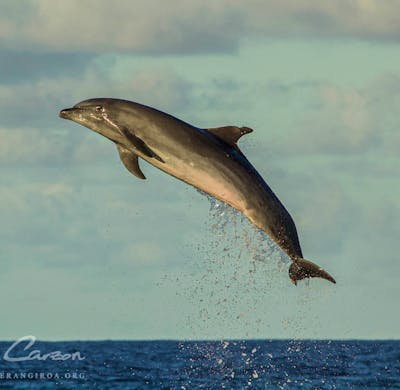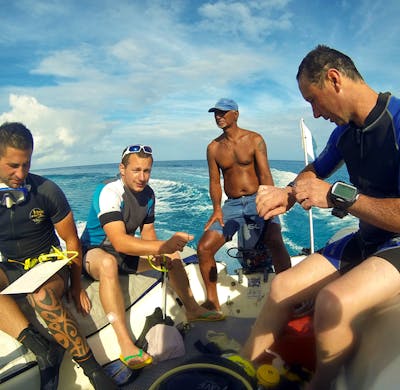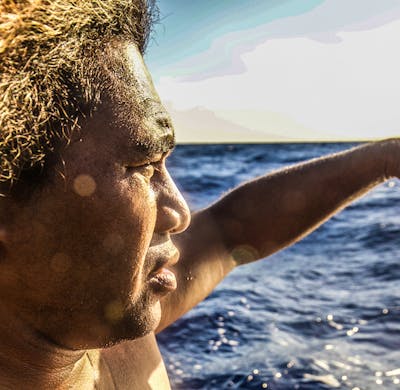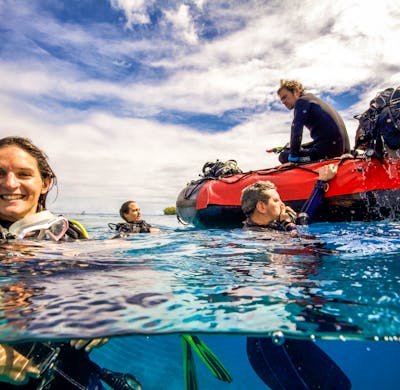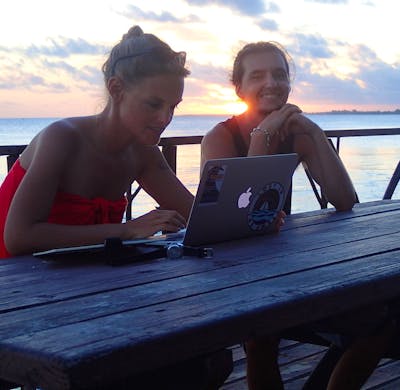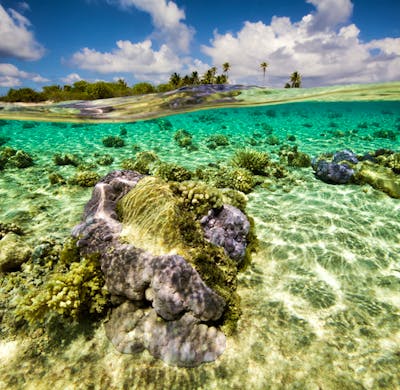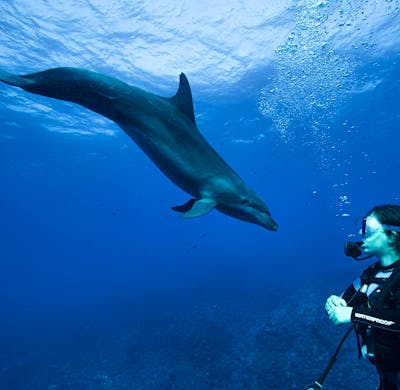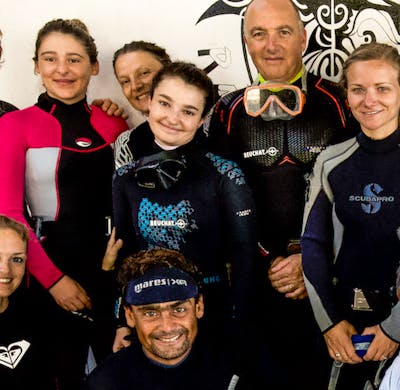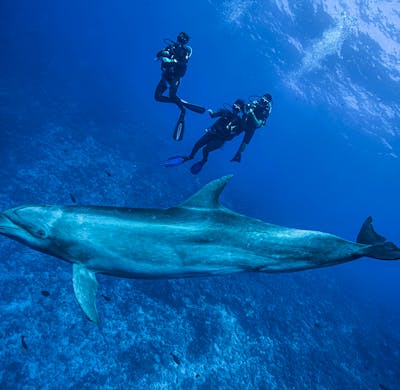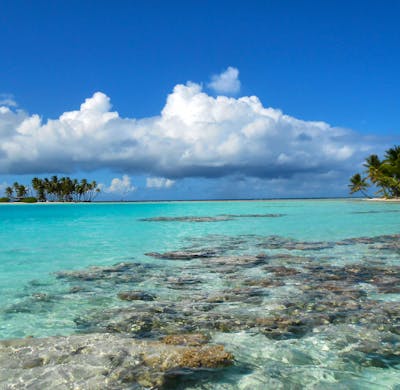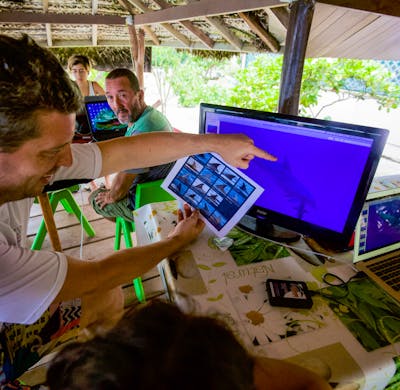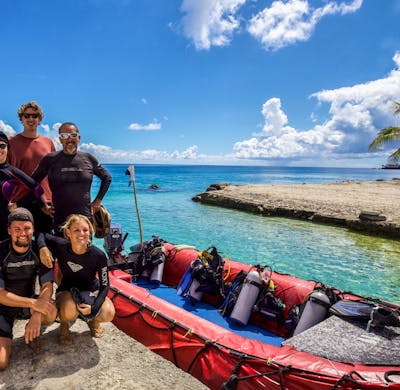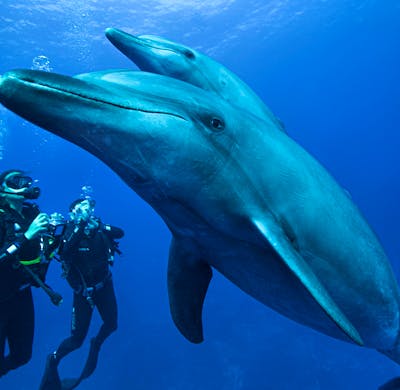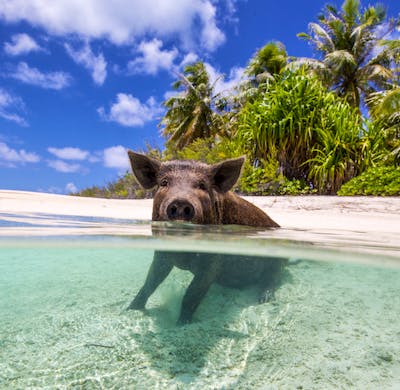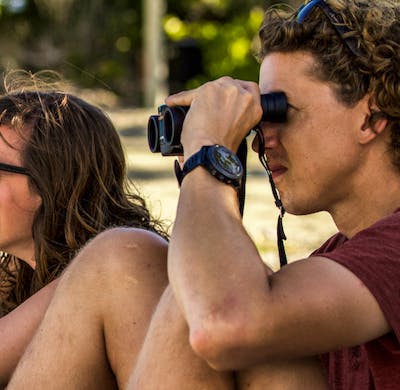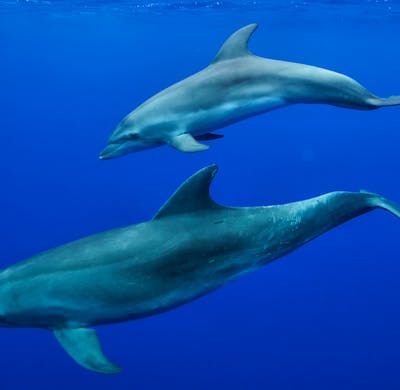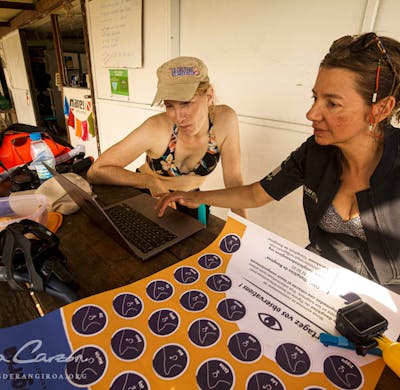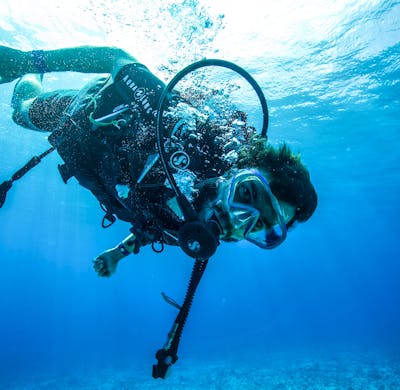THE TUAMOTU ARCHIPELAGO
The Tuamotu Archipelago - population of 15,000 people -, an area highly threatened by climate change, contains 78 atolls spread across an 800,000-square-kilometer ocean surface. It has 800 square kilometers of land for 20,000 square kilometers of lagoon - 0.1% and 2% of its maritime area respectively -, demonstrating how fragile this oasis of aquatic biodiversity is. The Tuamotu atolls are characterized by their height, shape, exposure to the ocean, population, and the activities performed there. There are small, closed lagoons, both hypersaline and brackish, and large lagoons open to the ocean like Fakarava, which features the largest pass in French Polynesia at 1,600 meters, and even a raised coral atoll, Makatea. Coral growth, which allows these small island reefs of only a few meters in altitude to exist, is directly affected by the slow and irreversible acidification of the oceans - a 30% increase over two and a half centuries. Here, as anywhere else, ecosystems are defenseless against commercial, demographic, and climate pressures.
RANGIROA ATOLL
Yet 350 kilometers from Tahiti in the Northwest Tuamotu Islands, the giant atoll of Rangiroa - 'Great Sky' in Paumotu -, a true oasis of life in the heart of the tropical Pacific Ocean, stretches its 170 kilometers of coral reefs, sands, and coconut trees around a 1,600-square-kilometer area with waters so fish-laden that it has become one of the world's top diving destinations. The atoll's impressive size - 80 kilometers long by 20 kilometers wide on average - and its two large channels, Avatoru and Tiputa passes, make it home to marine wildlife as exceptional as it is impressive.
THE BOTTLENOSE DOLPHIN
The common bottlenose dolphin, Tursiops truncatus, is distributed throughout French Polynesia. However, the species is more easily and frequently observed in Rangiroa Atoll than in other Polynesian islands. Here, adults can reach up to 3.3 meters and weigh up to 450 kilos. They are identified by their stocky and grayish body prolongated by a thick rostrum. The line of their mouth, curved upwards, gives them a smiling appearance. Nevertheless, this morphological feature does not reflect the overall species’ behaviors as these dolphins have an extremely complex social life and may display affiliative behaviors such as play and petting behaviors as well as agonistic behaviors - e.g. intimidation, aggression. The numerous scars and notches visible on the adult males’ bodies perfectly illustrate these animals’ strength.
OUR GOALS
For many years, scuba divers have been illegally encouraging physical interactions with Tiputa bottlenose dolphins, especially with young individuals. Nowadays, some of Tiputa dolphins are highly tolerant to humans, making them particularly vulnerable to anthropogenic activities. Indeed, overconfident animals may easily be injured by human activities, or even destroyed if they display intrusive or aggressive behavior toward humans.
1. Through our long-term demographic and social monitoring of Tiputa dolphins, we aim at spotting any deleterious impact of human activities on the dolphin community.
2. Through our long-term behavioral monitoring, we aim at better understanding the impacts of tourism on the dolphins’ behaviors, and identify and prevent the risks associated with close dolphin / diver interactions.
3. Through our education program, we aim at sharing results and recommendations with the general public to help develop ethical and sustainable dolphin watching activities.
WHAT IS THE ROLE OF THE VOLUNTEER?
First, the volunteers discover the dolphins' habitats and our monitoring program. Then, they are trained to identify the dolphins individually, to spot basic affiliative and agonistic dolphin behaviors, and to help collect underwater and shore-based photo and video data. They are asked not to attract or otherwise disturb the dolphins and other marine wildlife, but to adopt a passive attitude underwater. After the dives and shore-based sightings, the volunteers enter the data collected into our databases.
Our 14-day missions need certified scuba divers with a minimum Open Water certification and an experience of at least 20 dives at sea. The volunteers must show their credential before starting diving with us. They must be in good physical and mental conditions and demonstrate good team spirit. They must not be too sensitive to seasickness.
In order to enjoy the lagoon during free time, we advise our volunteers to bring their own fins, masks and snorkels.
WHAT ARE THE VOLUNTEER ACTIVITIES AND RESPONSIBILITIES?
1. Underwater sightings
All the dives are supervised by professional diving instructors. Before each dive, a briefing focuses on the dive spot, safety procedures, and marine life. Our dive spot is located at about 5 minutes by boat from the dive center. The volunteers must remain with their instructor throughout the dive which generally lasts between 45 and 70 minutes. They are invited to take video footage of the dolphins. Divers without cameras may record environmental parameters. After the dives, we debrief on the environmental conditions, underwater sightings, dolphins' IDs and behaviors.
We strongly recommend you to bring your own underwater camera.
2. Shore-based sightings
All the land-based sightings are supervised by DDR's president. Long breaking waves - locally called 'mascaret' - resulting from a strong tidal current run through Tiputa pass two times a day. This exceptional setting constitutes a privileged socialization ground for the dolphins which regularly come to surf and leap into the waves. This location is perfect to spot and take dolphin pictures without influencing their behaviors, and to record information on boats and divers that travel through the dolphins' core habitat. This activity is strongly dependent on currents.
3. Part of the day is dedicated to data processing, training courses, comments, and debates. Depending on the time of the year, the volunteers may be invited to participate in public outreach activities.
WITH WHOM WILL THE VOLUNTEERS BE WORKING?
The volunteers are supervised by DDR's president, diving instructors, and captains.
WHAT DO WE EXPECT FROM THE VOLUNTEERS?
Our mission is a participative tool for the demographic and behavioral monitoring of a small dolphin community impacted by wildlife tourism. It allows you to better understand the dolphins' routine, issues related to their conservation, and complexity of human / wildlife relationships. We expect our volunteers to get involved in our fieldwork to help the NGO sustain its long-term dolphin monitoring program.
WHAT CAN THE VOLUNTEERS EXPECT FROM US?
DDR's president has a PhD in ethology / behavioral ecology. She has been working on this dolphin community for more than 15 years. She will share her experience and knowledge objectively and with passion. Volunteers usually leave the mission with a new perception of dolphins and their environment. Our captains and diving instructors know the location very well and share their knowledge with great pleasure and spontaneity.
DO THE VOLUNTEERS HAVE TO BRING SPECIAL EQUIPMENT?
We strongly recommend the volunteers to bring their own fins, masks and snorkels, a long sleeve lycra or wetsuit, and an underwater camera. It may be useful to bring a laptop and hard drive. We also advise everyone to bring a hat or cap, polarized sunglasses, a seasickness remedy, a raincoat, a mosquito repellent, and an antibiotic ointment.
RECOMMENDATIONS
- Volunteers must be in good physical and mental conditions, with no heart disease or treatment requiring immediate proximity to hospitals.
- We strongly advise people who did not dive for more than six months to do a security visit to an ENT and a refresh dive.
- Volunteers must be able to live with other people.
- Adaptability, patience, thoroughness and good humor are welcome.
GOOD TO KNOW
- A biometric passport and an ESTA form are required for stopovers in the USA.
- The voltage used is 220V.
- All field activities are dependent on the weather and currents.
- It is prohibited to dive less than 12:00 before a domestic flight and 24:00 before an international flight.
- Water is always at perfect temperature - between 25 and 29°C. However, you should beware of currents, especially along channels.
- Avoid swimming at night or wearing shiny jewelry while swimming or diving near the reefs - moray eels, barracudas. We do not recommended swimming in areas where fish have recently been cleaned. Beware of stonefish and do not touch the coral or other animals. Never collect live coral or shells.
- We recommend wearing a Neoprene suit. You should generally avoid walking barefoot in the water.
- Be careful of the sun and dehydration. We strongly recommend you to bring a sunscreen, antibiotic ointment, and antihistamine cream.
- Beware of mosquitoes.
- Fresh water is a rare and precious commodity in the Tuamotu Islands.
- The local currency is the French Pacific franc, which is indexed to the euro. €1=XPF 119.33. Cash is handy when you need to buy a sandwich or drink, or take a taxi. ATMs are found at Rangiroa airport and Tiputa village.
- Rangiroa has a medical center, doctors, and a pharmacy.
- Baggage from overseas must not exceed 30 kilograms.
- Drugs are strictly prohibited.
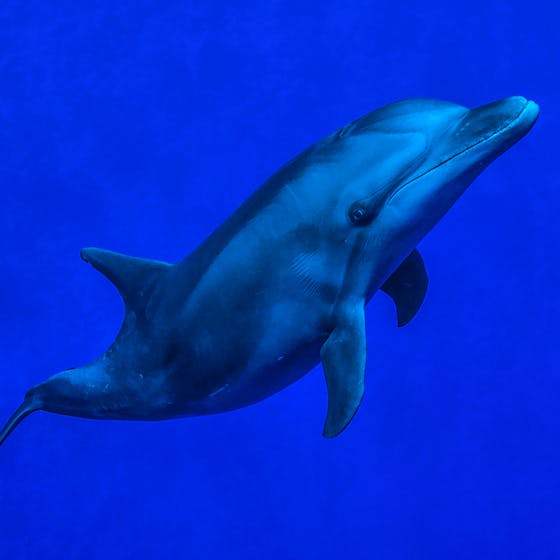
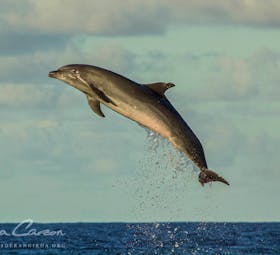
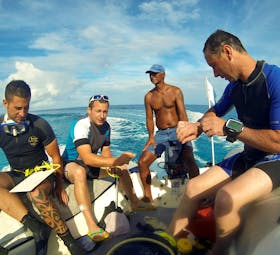
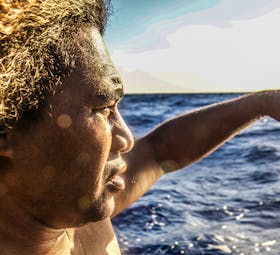
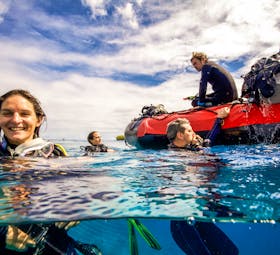
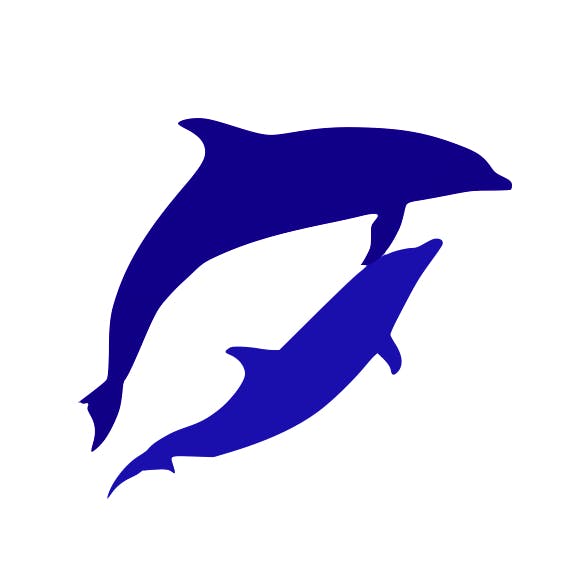
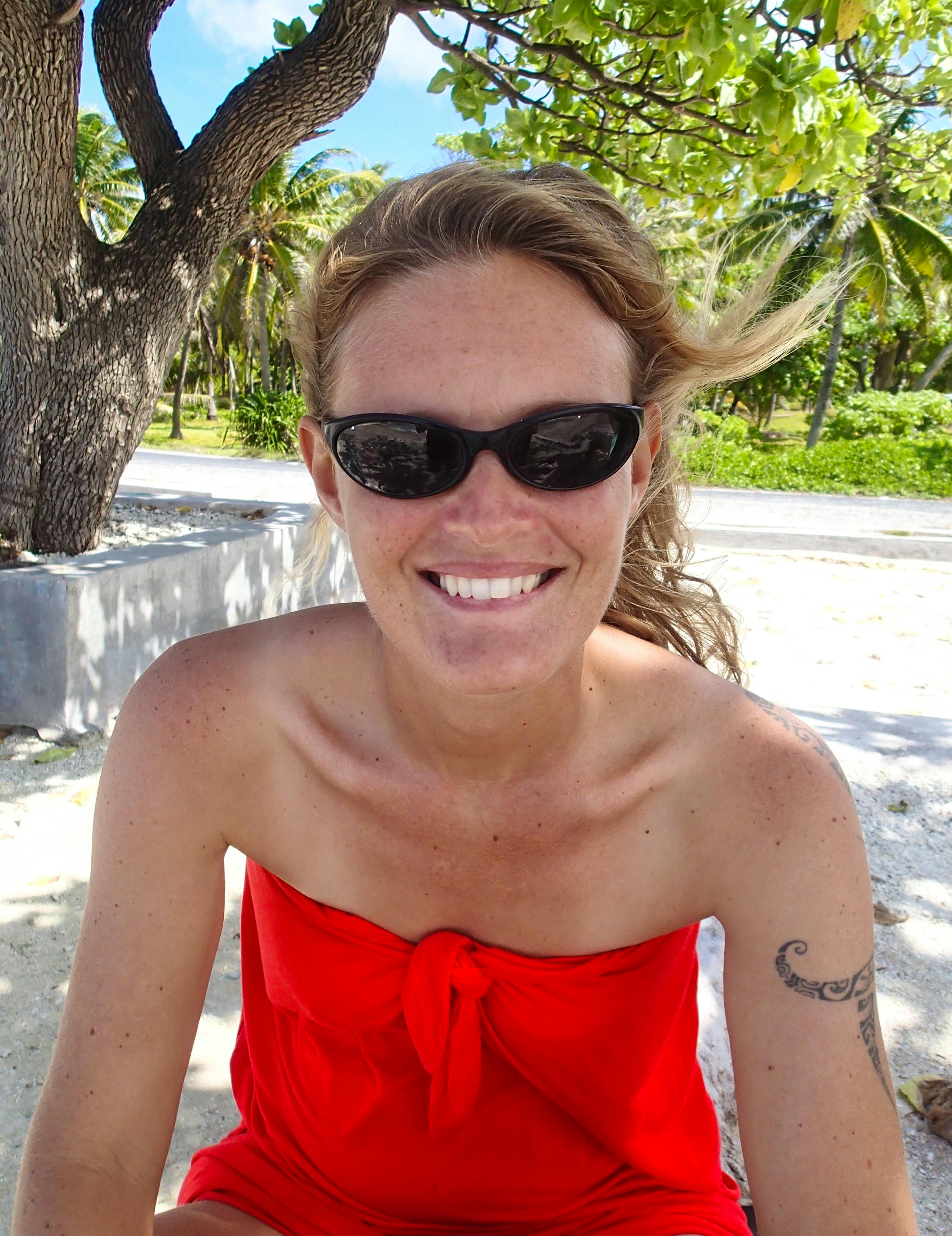
 4.8
4.8

